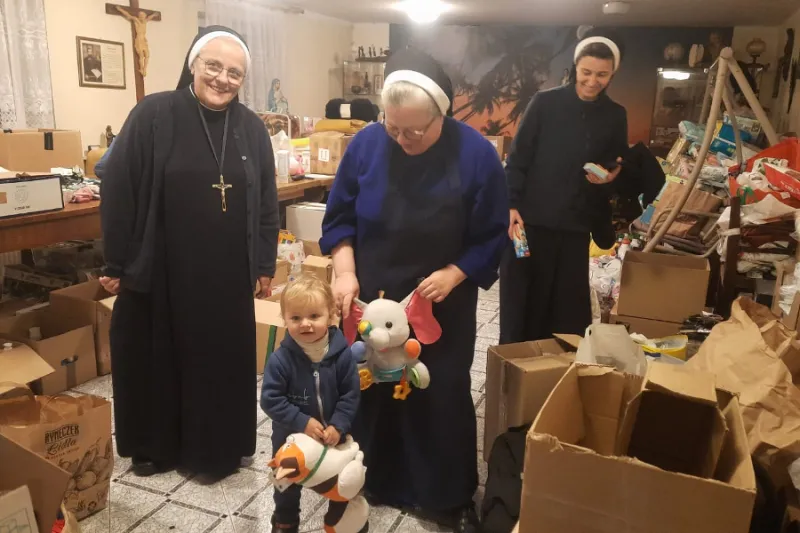
Warsaw, Poland, Mar 15, 2022 / 04:05 am (CNA).
Almost 1,000 Catholic convents in Poland are helping refugees from Ukraine.
The Council of Major Superiors of Congregations of Women Religious in Poland said on March 15 that sisters in 924 convents in Poland and 98 in Ukraine were offering “spiritual, psychological, medical, and material help.”
All of the nearly 150 religious congregations operating in Poland and Ukraine are believed to have helped people in need, with some offering assistance to as many as 18,000 people.
Poland, a country of 38 million people that borders both Russia and Ukraine, was already home to an estimated two million Ukrainian workers before the war.
The U.N. refugee agency reported that as of March 14, almost 1.8 million people have entered Poland from Ukraine since the full-scale Russian invasion on Feb. 24.
The Council of Major Superiors of Congregations of Women Religious said that 498 convents in Poland and 76 in Ukraine have organized housing.
So far 3,060 children, 2,420 families, and roughly 2,950 adults have received shelter.
In 64 institutions, there are 600 places for orphans, and in 420 institutions there are almost 3,000 places for mothers with children.
Sisters have helped to prepare and distribute hot meals, food, sanitary products, clothing, and blankets. They have also helped to transport people from areas affected by war and assist newcomers in finding work in Poland.
They have created additional jobs in their centers, coordinated assistance to refugees at aid headquarters, helped Ukrainian children enrol in Polish schools, and served as translators of the Ukrainian language.
They have also organized classes for children and mothers coming from Ukraine. Elderly and disabled people are also among those who have found shelter in institutions run by sisters.
Religious communities are constantly collecting food and hygiene products that are sent to Ukraine, or given directly to refugees in Poland or houses run by congregations.
The congregations also make financial donations and transmit funds through their foundations.
Currently, there are more than 332 sisters from Polish religious congregations in Ukraine.
The figures were collected up to March 14 by the Council of Major Superiors of Women’s Religious Congregations.
If you value the news and views Catholic World Report provides, please consider donating to support our efforts. Your contribution will help us continue to make CWR available to all readers worldwide for free, without a subscription. Thank you for your generosity!
Click here for more information on donating to CWR. Click here to sign up for our newsletter.




A good emerging from an evil. Polish and Ukrainian brotherhood. It wasn’t always that way. Poland in its glory days subjugated a large swath of Ukraine, and maintained some of it in accord with the Curzon delineation of Polish frontier following WWI.
A people subjugated now brother allies. Christ we pray may restore similar brotherhood throughout historically war torn E Europe.
how can we donate to the nuns who are helping Ukraine?